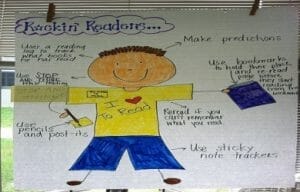
The mass killing at a Connecticut elementary school was in the news the day I read the American Academy of Pediatrics (AAP) clinical report on supporting a family after the death of a child. The collective grief from this tragedy has affected the families, the community, and the nation. More often, however, grief results from the loss of one child’s life due to disease, an accident, or infant death. Pediatricians usually are aware of a patient’s death resulting from an illness, but may not be informed of one that occurs in a hospital or emergency department if they are not part of the care team.
This prescient clinical report provides pediatric clinicians with a guide to actively help parents and siblings after the death of a child. The following are among the many practical suggestions:
- Expect that grief after the loss of a child is intense and long lasting.
- Acknowledge the family’s grief. Parents and other family members often experience more pain when the death of a child is not acknowledged. Grieving parents report that they remember painful feelings associated with a friend, family member, or physician who does not contact them.
- Find an opportunity to meet with the parents. A telephone call to the parents may be helpful, but a face-to-face visit with the parents is best. A simple statement to parents might be, “I’m so sorry to hear about _____’s death. What a terrible loss for you and your family.”
- Don’t attempt to alleviate grief by providing advice; it is usually ineffective and could be detrimental.
- Help siblings with the grieving process. Siblings are often “forgotten mourners” when parents are dealing with their own grief. A pediatrician who knows the family is in a position to help siblings according to the child’s developmental age (see Pediatrics 2000; 105:445).
- Community-based self-help groups can provide immediate and ongoing support to a family. A useful website for parents is www.bereavedparentsusa.org.
- Refer parents or siblings experiencing a complicated grief process to a mental health therapist. Complicated grief is often associated with a preexisting psychiatric condition or a troubled relationship with the child before his or her death.
Comment: After reading this clinical report, I reflected on the patients who died during my 40 years of pediatric practice. Each child’s death taught me about a particular medical condition and provided insights about working with families. Early in my career, I made mistakes and learned from them. One lesson learned is that parents remember what we do (or don’t do) many years after their child’s death. One parent remarked to me several years after his son’s violent death, “You never stop grieving. While the first year is the most intense emotional experience, each time I have memories about my son (especially on his birthday), I experience the same emotions that followed his death.”— Martin T. Stein, MD
Published in Journal Watch Pediatrics and Adolescent Medicine January 2, 2013

Be the first to comment